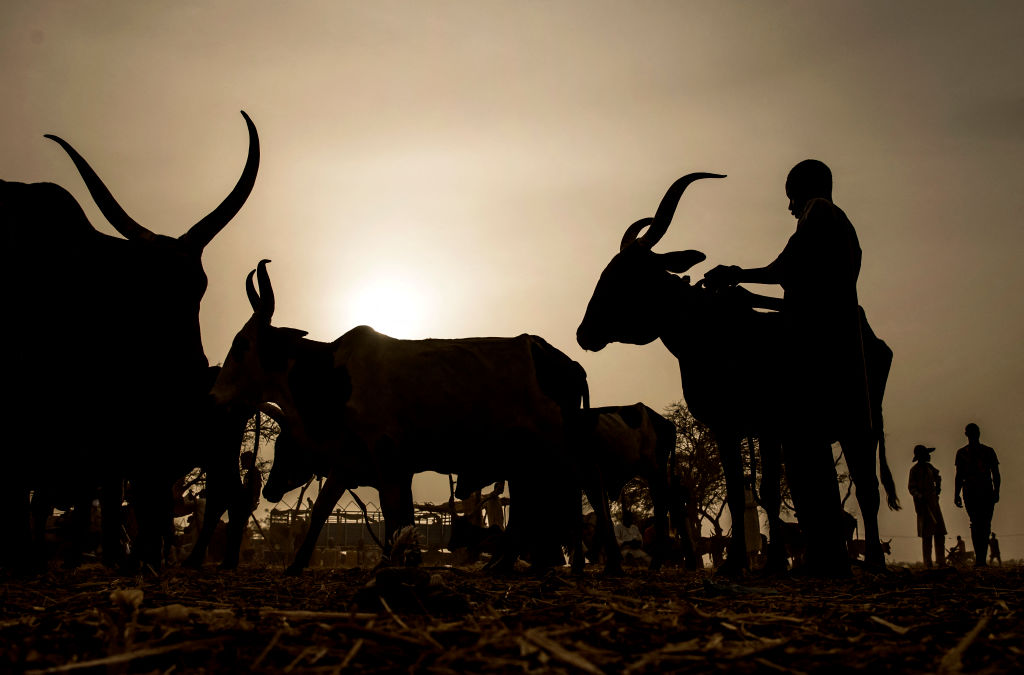A Fulani herder named Musa was asleep at his home in northeast Nigeria in early April when he and his family heard gunfire and fled into the bush. When it was safe to return, Musa found that terrorists had stolen the source of his livelihood: 36 cattle and 40 sheep.
Musa’s plight, as reported by Agence France-Presse (AFP), is not unique among herders in the Lake Chad Basin, across West Africa and in the Sahel, where livestock is coveted and thieves sell stolen animals at local markets.
“Cattle rustling is a major source of funding for armed groups,” an expert from Cameroon’s University of Maroua told Enhancing Africa’s Capacity to Respond More Effectively to Transnational Organized Crime project. “If we say, for example, that a cow is worth 200,000 CFA [more than $346], over a short period of time, a group that stole 25,000 head would have amassed 5 billion CFA [more than $8.6 million].”
Nigeria is most affected by livestock theft in Africa and Mali is second, according to Flore Berger, a researcher with the Global Initiative against Transnational Organized Crime. Berger told AFP that the illicit livestock trade fuels ongoing conflicts while robbing herders of income.
Rustlers have been increasingly active in Nigeria since 2011, resulting in thousands of deaths, loss of livelihoods, widespread destruction and displacement of people. “This has had a debilitating impact on the country’s stability,” initiative researcher Kingsley L. Madueke wrote.
The illicit trade has been a hallmark of Mali’s war economy for years.
“Unlike other criminal markets (such as cocaine or kidnappings), cattle rustling has proven to be a resilient and stable source of income for armed groups, because Mali is a key regional producer and exporter of cattle,” Berger told The Associated Press (AP). “It’s likely that cattle rustling continues to provide sources of revenue because countries in the region will continue to buy from Mali.”
Terrorists are known to stake out watering holes where cattle come to drink. “They set up shop next to the wells for several days, and every time the thirsty animals come to get water the terrorists take them,” Mahamad Ag Moustapha, mayor of the Inekar community in Mali’s Menaka region, told the AP.
A father of nine, Moustapha said he was forced to live in a displacement camp after he lost more than $84,000 worth of cattle when terrorists attacked Inekar. Stolen animals from Mali typically are hidden by being mixed with herds of legal livestock, then sent to countries such as Burkina Faso, Côte d’Ivoire or Niger, Berger told AFP.
In Burkina Faso, Mali and Niger, the Jama’at Nusrat al-Islam wal-Muslimin terror group dominates the illicit trade due to the vast territory under its control and its local connections. Berger told AFP that stolen livestock in the central Sahel is commonly sold through well-established channels involving agents, intermediaries, transporters, traders, butchers and corrupt local officials.
“Through these ‘commercial partners,’ the jihadists have access to intelligence and sustain themselves in the forests,” William Assanvo, a researcher at the Institute for Security Studies, told AFP.
Berger wrote in a study that the Ansarul Islam group has declared earning between 25 million and 30 million CFA ($41,100 to $49,400) per month through livestock theft in Burkina Faso.
In 2024, terrorists stole more than 600 animals from a hamlet in Niger’s Ouallam region, near the Malian border. A livestock owner was killed in one incident, a local source told AFP.
According to the Africa Center for Strategic Studies, livestock theft significantly fuels ethnic tensions and conflicts as some groups might perceive stealing livestock from communities with which they have been in conflict as a form of justice. This led to increasing numbers of community-based armed groups guarding against livestock theft — and sometimes engaging in reprisal violence. Terror groups in northern Burkina Faso, central Mali and parts of Nigeria have exploited intercommunal tensions to foster recruitment.
The scourge recently has pushed deeper into West Africa. The Armed Conflict Location & Event Data project reported that Boko Haram cattle rustling in the border areas of Cameroon and Chad rose from two incidents in 2015 to 131 between January and August 2024.
In Ghana, stolen livestock typically are sold at cattle markets near the Burkina Faso border, according to Clement Aapengnuo, who works with COGINTA, a nongovernmental agency funded by the European Union. He said the stolen cattle typically are priced lower than legally sold cattle.
“So, you go there, there are a lot of cattle that they are selling, and people are enjoying, they think this is cheap cattle we can buy and do ABCD, but they don’t realize that by buying those cattle they are financing terrorism,” Aapengnuo told German news service Deutsche Welle.
Madueke told AFP that authorities need to target networks that support livestock theft. Analysts say the cross-border nature of the illicit trade also requires regional cooperation. This can be complicated as Burkina Faso, Mali and Niger have left the Economic Community of West African States and formed the Alliance of Sahel States.

